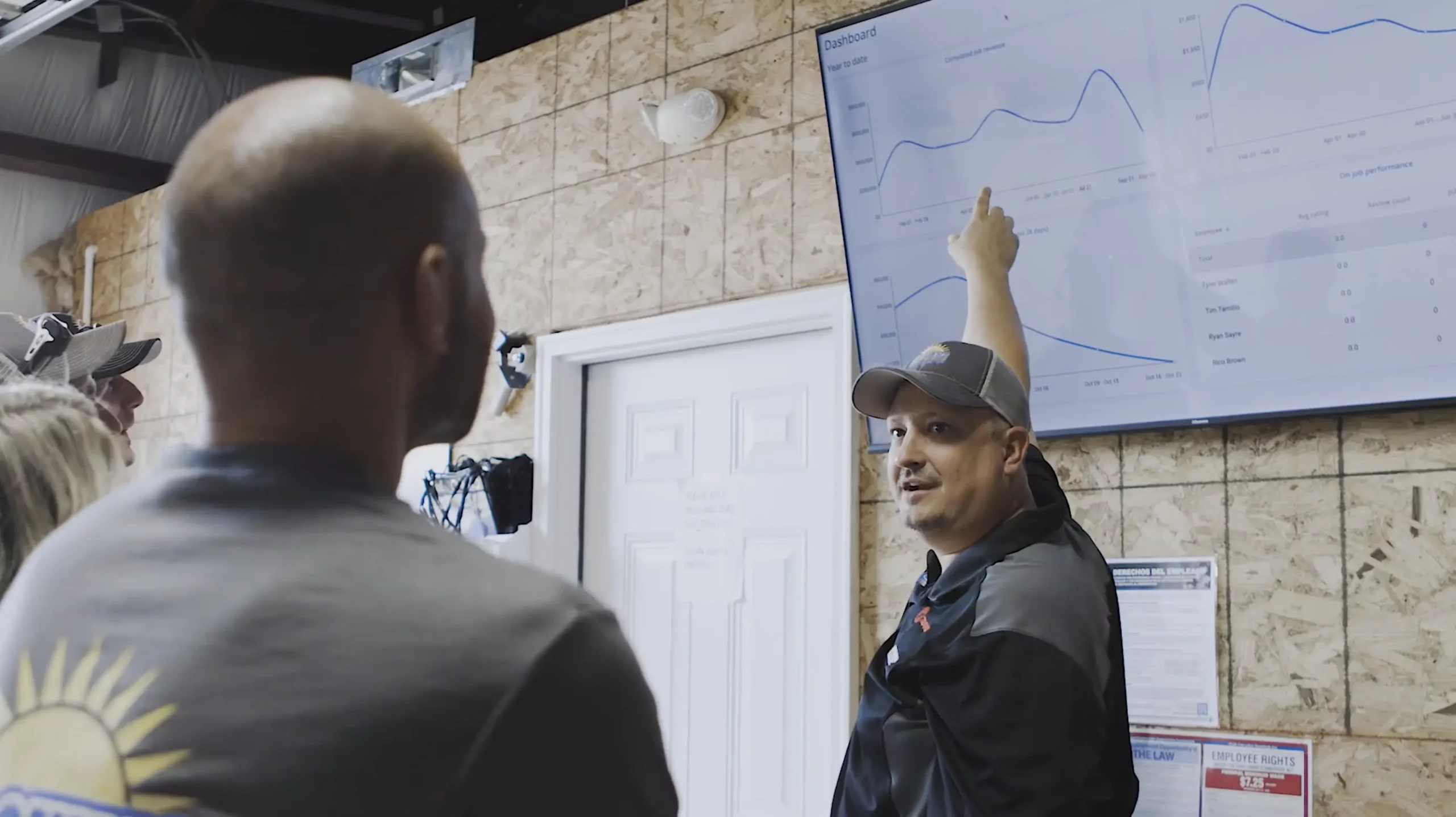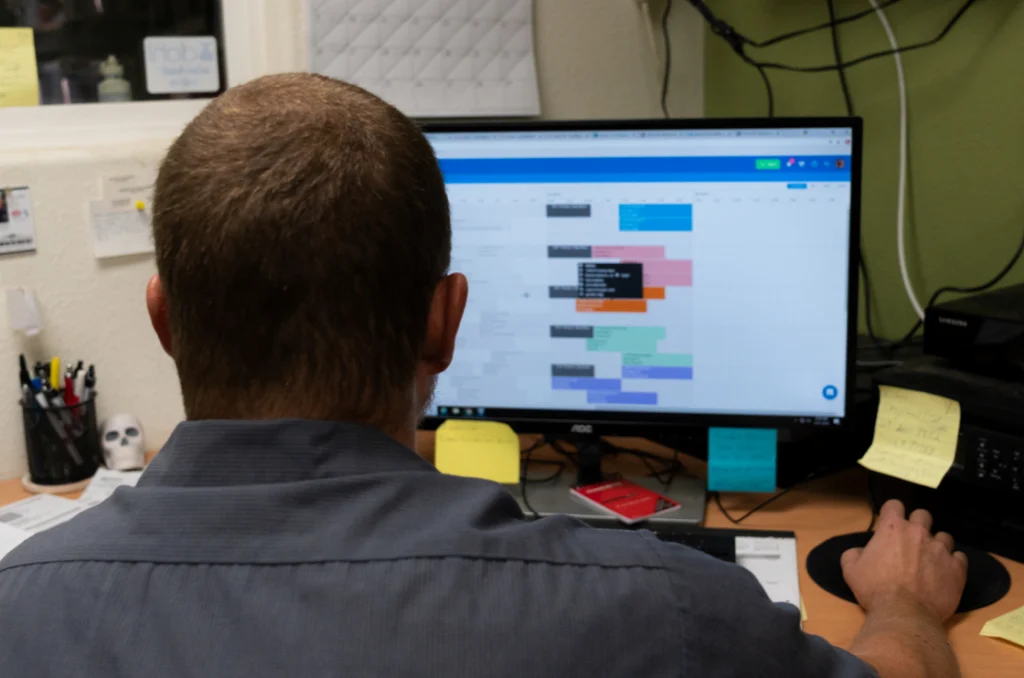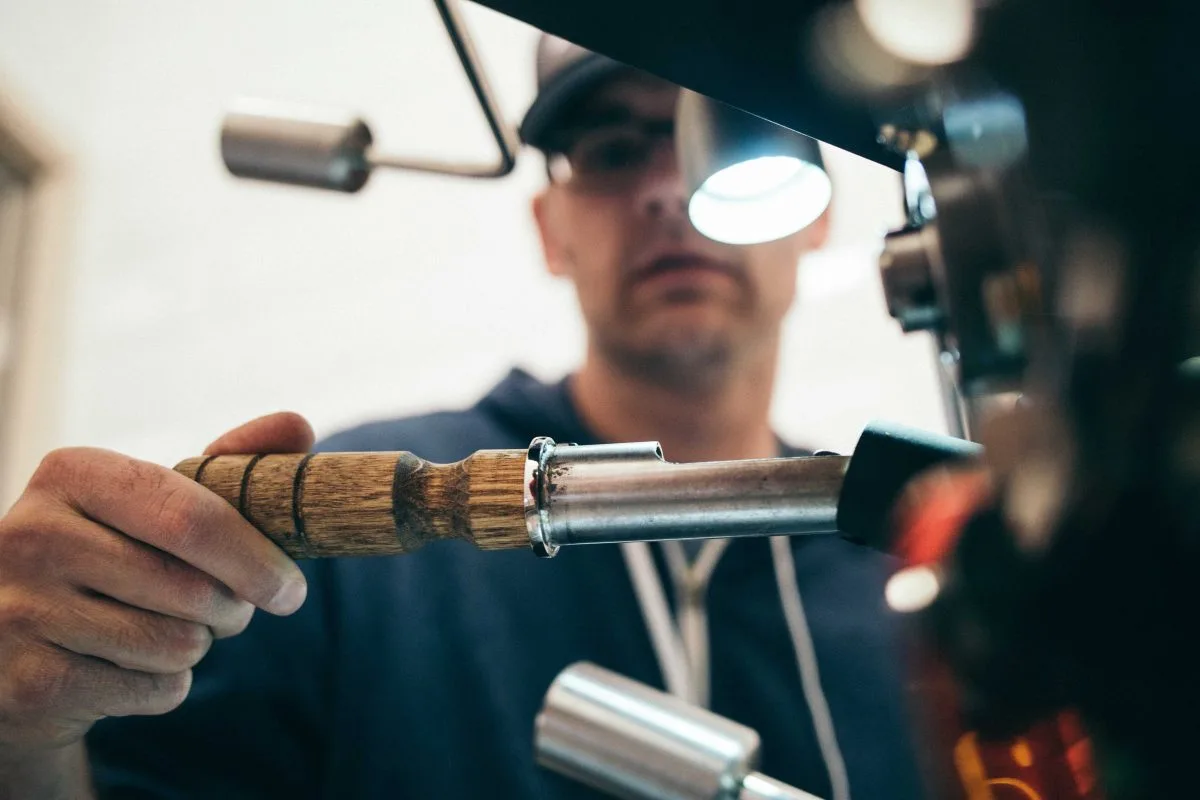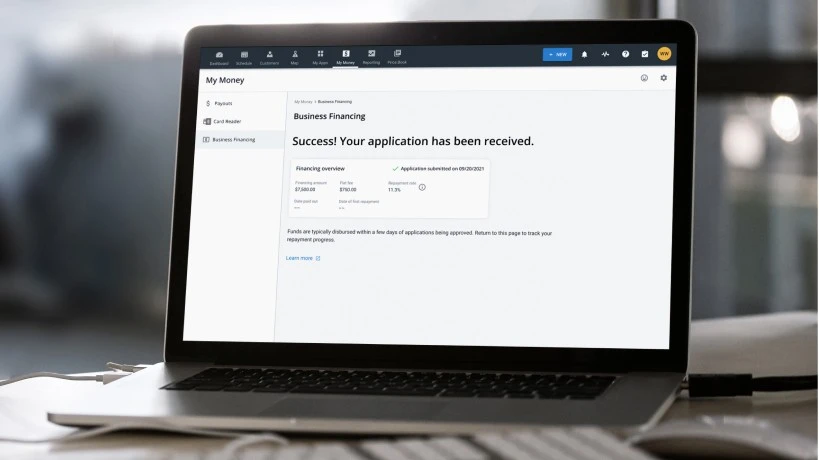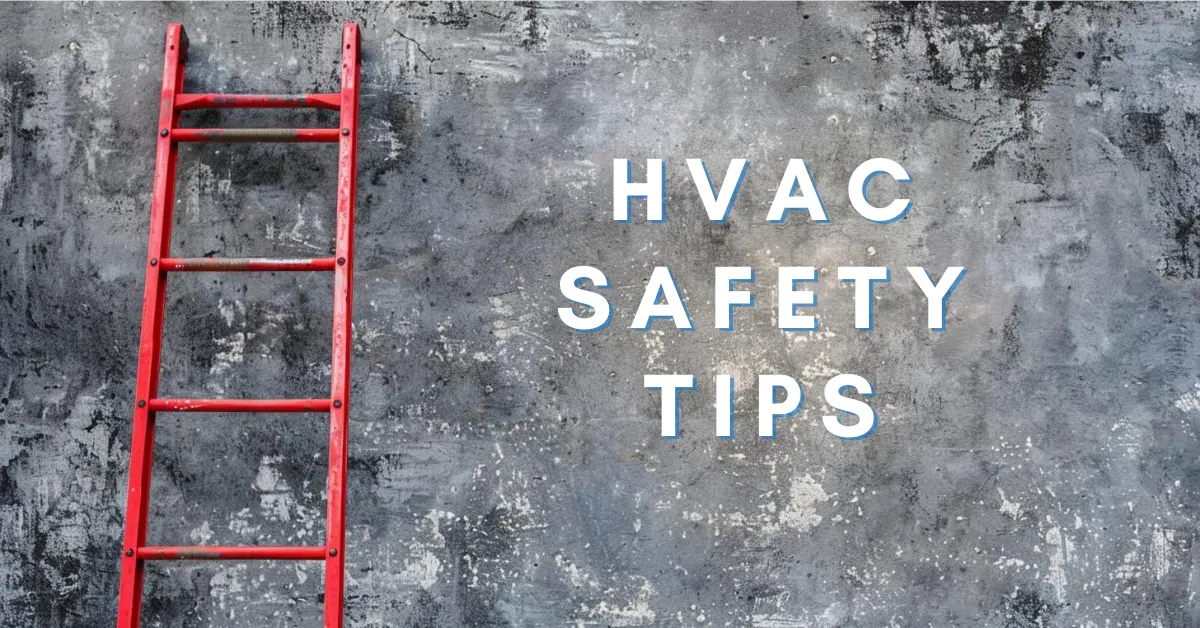
The safety of HVAC technicians continues to be a paramount concern within today’s fast-paced world controlled mostly by the digital age. The safety element remains a cornerstone along with high-quality service delivered to customers for most successful HVAC business owners. Whether it’s performing standard maintenance check-ups, installing a new system or handling emergency repairs, the wide range of risks that the average HVAC professional faces can vary from one jobsite to the next. From chemical exposures and electrical hazards to trip hazards and the overall physical toll taken by manual labor, each project has its own unique set of obstacles and challenges that could lead to high-cost mistakes and life-threatening accidents.
Therefore, it is vital for HVAC service business owners to acknowledge these risks and prepare accordingly. Doing so will allow them to establish a lasting culture that keeps safety as a core value and priority instead of just an easily forgettable compliance requirement. This is exactly where Housecall Pro’s home service business software enters the equation as both a tool and premium partner that helps to prioritize the safety of each technician on your staff. With embedded features designed to streamline the efficiency of your business operations, Housecall Pro plays a significant role in the reinforcement of safety protocols – making sure that your technicians have everything they need to remain safe job after job.
Within this comprehensive guide, we will focus on 12 vital HVAC safety tips that each of your technicians should include within their day-to-day routine. Beyond the standard best practices, we will focus on illustrating exactly how you could leverage Housecall Pro’s HVAC service software to enhance the adherence of your team to safety standards – which will help you to make precautions and safety checks smooth and seamless. From ergonomic practices and personal protective equipment and beyond, you will get a front row seat at discovering how the integration of these safety tips with Housecall Pro’s cutting-edge solutions will protect your HVAC business, your customers, and your technicians as well.
Join us now as we dive into each of the following HVAC safety tips outlined below:
- 1. Prioritize Your Personal Protective Equipment (PPE)
- 2. Check & Inspect Tools and Equipment Regularly
- 3. Understand Key Refrigerant Handling Procedures
- 4. Stay Up-to-Date & Informed on Electrical Safety Standards
- 5. Ensure That You Have Proper Airflow & Ventilation at Each Worksite
- 6. Master the Art of Using a Safe Ladder Properly
- 7. Keep Yourself and Others Protected Against Chemical Hazards
- 8. Remain Cautious While in Confined Spaces at All Times
- 9. Comply with the Safe Driving Procedures & Practices
- 10. Prevent Injury with the Use of Ergonomic Practices
- 11. Prepare for and Conduct Safety Trainings Regularly
- 12. Use Advanced Technology to Enhance Standard Safety Protocols
- Housecall Pro Can Take Your HVAC Operations to the Next Level
- Remember – Safety is a Necessity, Not an Option
1. Prioritize Your Personal Protective Equipment (PPE)
When working in the HVAC field, the front line of defense against most hazards on the jobsite is the correct and consistent use of Personal Protective Equipment (“PPE”). This gear must serve as an essential element of your technician’s work uniform day after day. From goggles and gloves to safety shoes and hard hats, PPE is designed to protect your technicians in the field when they encounter the many different risks and dangerous situations that they face within the average worksite. This includes debris, harmful chemicals, electrical shocks, and mishaps with power tools. The significance of PPE is often overlooked and neglected – especially by those technicians who may feel as if it is unnecessary. However, multiple studies have shown that the correct use of PPE reduces the likelihood of worksite injuries and allows technicians to complete their work safely – which means more productivity and revenue for your bottom line.
2. Check & Inspect Tools and Equipment Regularly
Every HVAC technician knows that having reliable tools and equipment easily accessible at all times during your shift is a priority. It also plays a key role in the efficiency and safety of all tasks performed within the HVAC industry overall. Therefore, the regular inspection and maintenance of your tools and equipment is essential to ensure that everything remains in peak condition.
Regardless of the type of system or solution that you use for inventory management, it is imperative to have a solid equipment management routine that allows you to reduce the chance of any equipment-related safety incident. You will also enhance the quality of first-class service that your technicians are able to provide to each customer as you reinforce your company’s commitment to safety and excellence.
3. Understand Key Refrigerant Handling Procedures
Another key HVAC safety tip that your technicians should keep in mind is regarding the proper understanding of and overall adherence to efficient refrigerant handling procedures. Refrigerant is a common component included in HVAC systems as it is essential for the indoor comfort and cooling factor. However, the improper handling of this refrigerant can create a number of different safety hazards in addition to property damage. For instance, you should never release refrigerants into the atmosphere. Instead, recover and recycle them during the servicing of the system and disposal process. In addition, you should use electronic detectors and/or ultraviolet lights to check for leaks. Being up-to-date on such regulations as the Clean Air Act along with Section 608 standards enforced by the EPA are essential steps.
4. Stay Up-to-Date & Informed on Electrical Safety Standards
It is important for you to stay up-to-date on all electrical safety standards – especially since they are updated periodically. The last thing you want to do is to show up to a customer’s house using an outdated method or relying on equipment options that are no longer used in the industry. Electrical hazards such as burns, shocks, and fatalities pose major risks on any jobsite. Each technician must comprehend and have easy access to the latest regulations and codes that govern electrical work – including the National Electrical Code (NEC). Regular access to quality education and related resources can help you to keep your technicians equipped and capable of identifying these electrical hazards effectively. Staying informed will keep your technicians safe and ensure that your HVAC business remains compliant with industry regulations.
5. Ensure That You Have Proper Airflow & Ventilation at Each Worksite
To maintain a safe and healthy work environment in the HVAC service industry, you must ensure that there is proper airflow and ventilation at each site. Inadequate ventilation can easily lead to the quick accumulation of hazardous gasses and chemicals – such as refrigerant leaks, carbon monoxide, and various airborne contaminants. HVAC technicians must be able to skillfully assess ventilation systems to make sure that they meet the required airflow rates and remain free from any type of obstruction. The most efficient HVAC technicians prioritize ventilation to minimize risk of exposure and other hazards for themselves and their customers.
6. Master the Art of Using a Safe Ladder Properly
HVAC technicians that need to work at any height safely will typically use ladders as indispensable tools in their businesses. However, if these tools are not used correctly, they can create life-threatening safety hazards. This is why HVAC technicians must master the art of properly using a ladder. This includes being able to select the most appropriate ladder for a specific task or learning how to properly inspect the ladder before it is used at the start of each shift. Maintaining three points of contact while climbing your ladder in addition to the proper ladder positioning are other key tasks that must be completed to keep your technicians safe – regardless of the size of the job.
7. Keep Yourself and Others Protected Against Chemical Hazards
Potential chemical hazards are around every corner within the average HVAC job or task. From cleaning agents and refrigerants to adhesives and solvents, exposure to these chemicals could easily result in respiratory issues, skin irritation, and other health problems. This is why it is imperative for HVAC technicians to wear the necessary PPE when handling chemicals. You can also minimize the risk of exposure by focusing on the proper storage, handling, and even disposal procedures of those chemicals. Paying attention to these types of proactive measures can help you to protect yourself and your customers to mitigate the health risks associated with exposure to these types of chemicals needed for your work.
Get In Touch: 858-842-5746
Let us earn your trust
See plan options and feature breakdown on our pricing page.
8. Remain Cautious While in Confined Spaces at All Times
Your HVAC technicians will spend a considerable amount of time within confined spaces. Therefore, it is important to ensure they understand and follow the safety standards and principles related to working within these tight spaces. From attics and crawl spaces to equipment enclosures and narrow closets, limited mobility and poor ventilation are just two of the potential hazards presented by these types of environments. HVAC technicians must be able to follow the updated safety protocol when working in these confined spaces- including communication protocol, up-to-date training, and the use of your PPE. Confined space permits and air quality monitoring are other safety measures that should be prioritized as well.
9. Comply with the Safe Driving Procedures & Practices
Speeding, distracted driving, and reckless behavior on the road increase the risk of most automobile accidents – including when HVAC technicians are behind the wheel on the way to their next jobsite. This is not a liability that you want to carry on the shoulders of your company. Therefore, it is imperative to make sure that each tech is aware of the safe driving procedures that must be followed. From speed limit obedience and text-free driving to maintaining a safe distance when following other vehicles, each aspect of training on this topic can potentially save lives, time, and money. Your technicians will be able to protect themselves, passengers, customers and fellow drivers as they move about in their company vehicles.
10. Prevent Injury with the Use of Ergonomic Practices
There is a physically-demanding side of working in the HVAC industry that many people may not realize unless they have hands-on experience. If not performed correctly, quite a few of the commonly-used maneuvers and tasks could potentially lead to musculoskeletal injuries. This is where the use of ergonomic practices will come in handy. The objective is to reduce strain on your technician’s body, which will allow them to remain productive and safe with each job or project.
For instance, basic techniques such as proper carrying methods or even lifting strategies can go a long way. It is also important for your technicians to understand the value of neutral body positions and taking periodic breaks to stretch and relax their bodies to prevent overuse. The integration of ergonomic practices can easily protect your technician’s health and overall well-being. You will also be able to increase your company’s revenue as it will have a direct impact on your team’s overall productivity as well.
11. Prepare for and Conduct Safety Trainings Regularly
You are responsible for making sure that your HVAC technicians are fully-equipped and knowledgeable in the field. Regular safety training can help you to accomplish this goal – especially when there are industry changes and advancements that you need to teach to your team members. Keep in mind that the trainings should focus on emergency procedures, hazard recognition, proper equipment usage, and other related topics that will keep your technicians safe, efficient and productive in the field.
These types of training sessions and refresher courses will also help you to keep applicable safety protocol and procedures at the forefront of the minds of your technicians. Doing so will allow your HVAC company to stand out among your competition by empowering your technicians to work safely without compromising their productivity. It will foster a culture of safety within your company that will boost employee morale, employee engagement and rapport with your customers.
12. Use Advanced Technology to Enhance Standard Safety Protocols
The HVAC industry has been transformed in recent years by various technological advancements. By doing so, quite a few innovative solutions have enhanced the performance and overall efficiency of residential and commercial HVAC systems alike. Tools such as remote monitoring systems, digital job management platforms, and even augmented reality training programs allow technicians to have direct, real-time access to critical resources and information in the field.
The proper use and implementation of these technological advancements can streamline safety measures and methods – including safety checks, equipment inspections, compliance tracking and lowering the risk of human error. HVAC companies that embrace these types of digital solutions can take their standard safety practices to new heights while protecting their customers and technicians alike. It has also been proven to improve the overall efficiency of your HVAC services.
Housecall Pro Can Take Your HVAC Operations to the Next Level
While you keep safety as a priority in your HVAC business, take the time to consider exactly how Housecall Pro can streamline your operations overall. HVAC software can help you reinforce your commitment to the wellbeing and safety of your technicians as well. Housecall Pro includes features that are specifically designed to automate various safety protocols – including streamlined job management and custom job checklists. Housecall Pro will help you to create and maintain a safer work environment for your entire team while delivering first-class, exceptional service to your customers one project at a time.
Are you ready to take your safety standards to new heights with Housecall Pro? Sign up for a 14-day free trial to learn exactly how you can do that. Contact us today and we walk you through a comprehensive overview of our business management software and other related solutions in addition to scheduling a personalized demo. You will then be able to see exactly how Housecall Pro can become a perfect match for your specific HVAC business needs.
Remember – Safety is a Necessity, Not an Option
It is crucial for you to remember that safety is never an option – it is a necessity within the HVAC industry. You should strive to make sure that it is reflected in every aspect of how you run your company and how your technicians represent your company when they are working in the field. By implementing the 12 vital safety tips and strategies here along with leveraging such tools as Housecall Pro, your technicians will be able to mitigate risk and protect their well-being. More importantly, you will be able to keep your customers safe, boost your overall productivity, and ensure the lasting integrity of each operation or service provided by your company.
From mastering safe practices to staying informed about up-to-date industry standards, each of these tips plays an integral role in the overall success and safety of your HVAC company. Safety should always be viewed as a journey instead of a destination. By continuing to prioritize safety while embracing innovative solutions such as Housecall Pro, you will be able to protect your team and take your customer satisfaction to new levels. As a result, your company will be able to pave the highly-desired path of long-term success in the HVAC industry.

